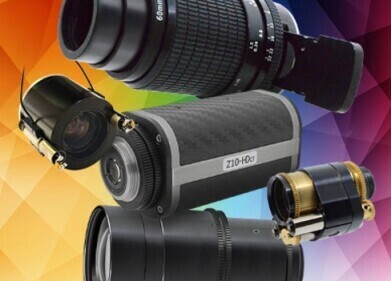Microscopy & microtechniques
Temperature Controlled Stage used to study the Rheological Characterisation of Anisotropic Materials
Aug 17 2012
Linkam Scientific Instruments, have been chosen as suppliers of a CSS450 for the Polymeric and Mesomorphic Materials Group, CENIMAT, Portugal for the rheological characterisation of anisotropic materials.
The research undertaken in the framework of Polymeric and Mesomorphic Materials Group is focussed in the areas of liquid crystals, polymer science and technology. Professor Maria Teresa Cidade, a researcher from this group, is studying the rheological characterisation of anisotropic materials.
Professor Cidade said: "The rheological behaviour of the materials under study is closely linked to its orientation and so it is very important to be able to follow the orientation by optical microscopy while under shear. The processing of the materials is dominated by its rheology, so, knowing that the rheological behaviour is dependent on the degree of orientation is crucial for processing design."
An additional reason these materials are known as complex fluids is because they possess properties similar to both solids and liquids simultaneously. Rheology is being increasingly used to understand the molecular basis for these properties, particularly in materials exhibiting complex behaviour. When Nuclear Magnetic Resonance (NMR) methods are combined with rheology, it can lead to useful information at the microscopic level about molecular organisation and dynamics, and at the macroscopic level about the local rate of fluid deformation.
Typically, in rheology a material is subject to deformation and stress. Stress σ(t), is monitored as a function of time dependent strain γ (t). Containment surfaces are used to apply stress causing the fluid to deform under the influence of the relative motion of these two surfaces. The velocity of the field created by the CSS450 can then be observed to understand the exact nature of the deformational flow. The Linkam Optical Shearing System (CSS450) allows the structural dynamics of complex fluids to be directly observed using a standard optical microscope while they are under precisely controlled temperature and shearing conditions. Professor Cidade noted that the CSS450 is both compact and ‘friendly’ to use. A great advantage is the simplicity of the stage which makes it easy for ‘beginner’ researchers to use.
Professor Cidade is mainly looking at cellulose derivatives, such as hydroxypropyl cellulose (HPC), which have useful applications in the foods, cosmetics and pharmaceuticals industries.
Digital Edition
Lab Asia Dec 2025
December 2025
Chromatography Articles- Cutting-edge sample preparation tools help laboratories to stay ahead of the curveMass Spectrometry & Spectroscopy Articles- Unlocking the complexity of metabolomics: Pushi...
View all digital editions
Events
Jan 21 2026 Tokyo, Japan
Jan 28 2026 Tokyo, Japan
Jan 29 2026 New Delhi, India
Feb 07 2026 Boston, MA, USA
Asia Pharma Expo/Asia Lab Expo
Feb 12 2026 Dhaka, Bangladesh
.jpg)
-(2).jpg)
















